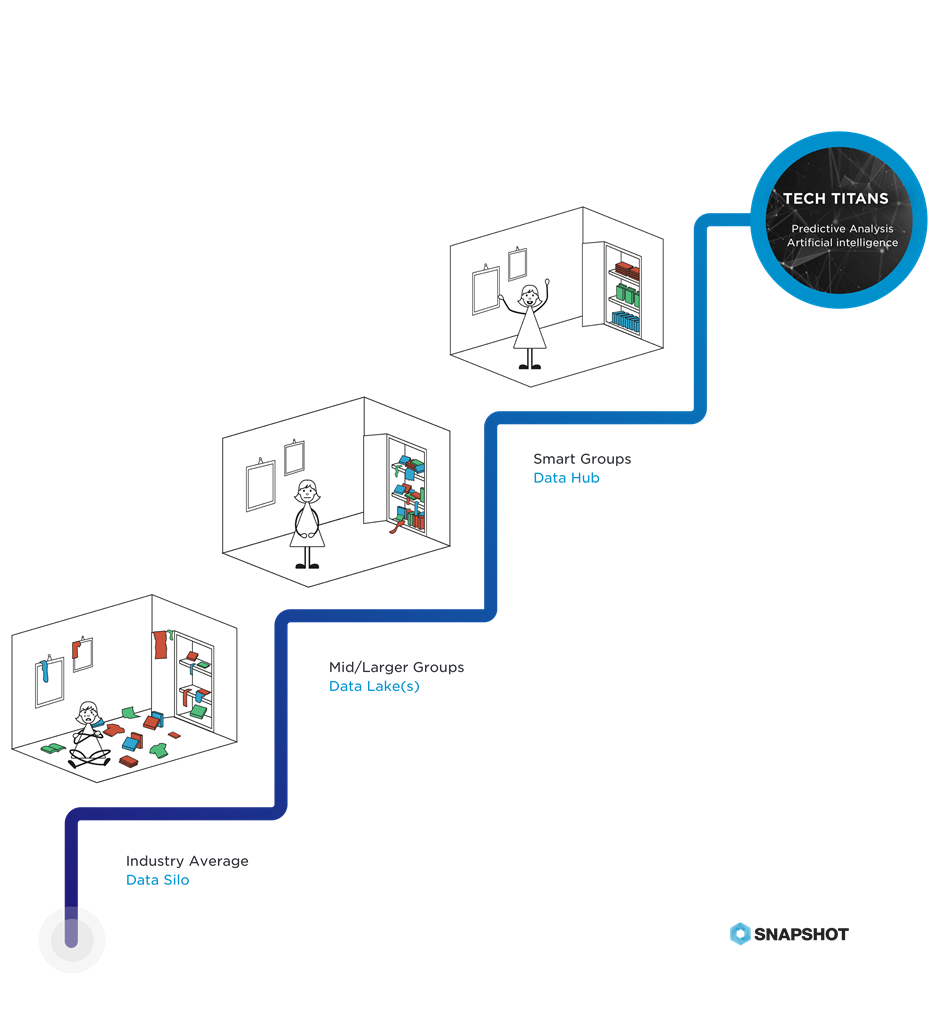
Hospitality industry is still at a low level of maturity in comparison to other industries when handling data. The combination of silos between systems and technologies, large amounts of unstructured data, and legacy systems, hinders the hospitality industry from advancing and taking advantage of this valuable resource. Understanding the value of data and creating a data strategy takes not only time, but also effort and investment. The industry average is made up of mostly groups and independent hotels with legacy data and technology-based thinking.
Hotels are predominately still using on-premise legacy technologies with little integration. Data silos are naturally created due to the tendency for systems to retain their data. Data lakes act as a temporary storage solution to the data management problem. They also begin to address challenges of integration and data silos, but they don’t completely fix the issue. While the data becomes centralized, it is still difficult to index the data and find what you are looking for when the data is left in un/structured forms.
Smart groups in the hospitality industry place a high value on the value of data. Data hubs are one solution. Data Hubs allow for businesses to optimize processes and increase their technology ROI and generate keen customer insights. Tech titans like Apple, Amazon, Google, and Facebook, have paved the way for the tech industry. The dominant players are the big consumer tech companies, as we call them, control devices and what customers receive for searches. By incorporating a data hub into your data strategy, your hotel begins to open up to even more capabilities.
Data Strategy
Predictive analysis is achieved when full advantage of data is taken and applied through a combination of algorithms and machine learning. In hospitality, companies are beginning to link predictive analytics with geolocation data to deliver effective recommendations on-property and in real-time through mobile applications. The predictive analytics revolution in hospitality has only just begun as more and more new players are entering the playing field and accelerating innovation with a data strategy. But it’s not as simple as purchasing new technology to accomplish predictive analysis. To begin with, a data management program needs to be put in place where the development, execution, and supervision of all plans and programs that will deliver, control, and enhance the value of data are managed.